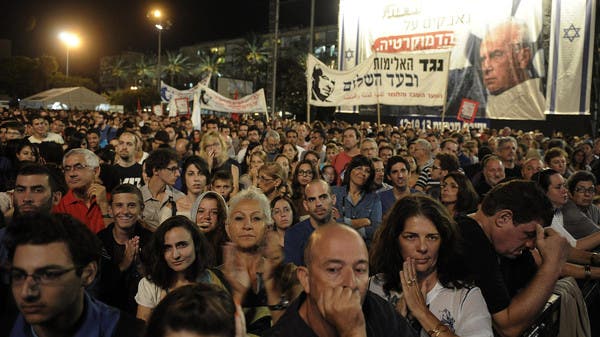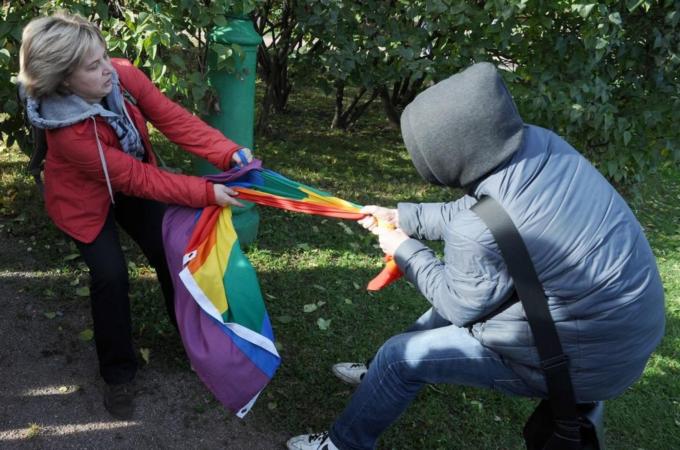By Darrin Simmons
Impunity Watch Reporter, Middle East
JERUSALEM, Israel-In honor of his life and peace-seeking mission, tens of thousands of Israelis gathered in Tel-Aviv to mourn the loss of Prime Minister Yitzhak Rabin, who was assassinated eighteen years ago.

The majority of the protestors were young people from a wide range of political ideals, coming together to protest against Israeli radicals who oppose peace with Palestine. Rabin was assassinated following a speech in the same square as the protest on November 4, 1995.
Portraits of Rabin and banners with slogans condemning racism and intolerance were waved as protestors held their vigilance. On banner, referring to the colloquially named “price tag” attacks on Palestinians by Jewish extremists, read “Stop the price tag, defend democracy.”
Yonatan Ben-Artzi, Rabin’s grandson, gave a peace talk at the rally saying, “For the first time in years, a special opportunity has been put in your path, to take advantage of a unique situation in order to bring peace and solve both the Iranian and Palestinian conflicts at the same time. All of this with support and encouragement from the international community.”
“This will not be easy, and certainly will not always be popular. But history shows that leaders’ [merits] are tested in unpopular times. I believe this is your time,” further stated Ben-Artzi.
Other speakers at the rally encompassed a wide range of Israeli society, including people who were close to Rabin and those who identified with movements opposing the Oslo Accords.
The current Prime Minister, Binyamin Netanyahu, was the leader of the opposition when Rabin was slain and harshly criticized the 1993 Oslo Accords, a land mark agreement aimed at resolving decades of old conflict, that Rabin signed with then-Palestinian leader Yasser Arafat.
Netanyahu participated in protests against Rabin and his government in the months prior to his murder. Many Israelis believe that Netanyahu played a role in inciting violence against Rabin and his followers.
“The years have passed. My pain remains but I am not here to blame you for what happened, Ben-Artzi told Netanyahu during his speech as he continued to stress the importance of finding peace and not spreading blame.
Organizers of the rally stated that this year’s purpose was to be a call for “a renewal of our basic obligations as a society—that we work and stand guard to strengthen the democracy of Israel.”
While no official estimate of the size of the crowd was given by police, reporters in attendance estimated there to be around 35,000 protestors, a larger number than recent years.
An official ceremony is to be held on Tuesday at the Jerusalem cemetery where Rabin is laid to rest.
For more information, please see the following:
Al Arabiya-Thousands rally in Israel to remember slain PM Rabin-October 12, 2013
Al Jazeera-Israelis gather to remember slain Rabin-October 12, 2013
Jerusalem Post-Rabin’s grandson urges Netanyahu to lead Israel to peace with Palestinians-October 12, 2013
Times of Israel-Thousands attend memorial for slain prime minister Yitzhak Rabin-October 12, 2013

